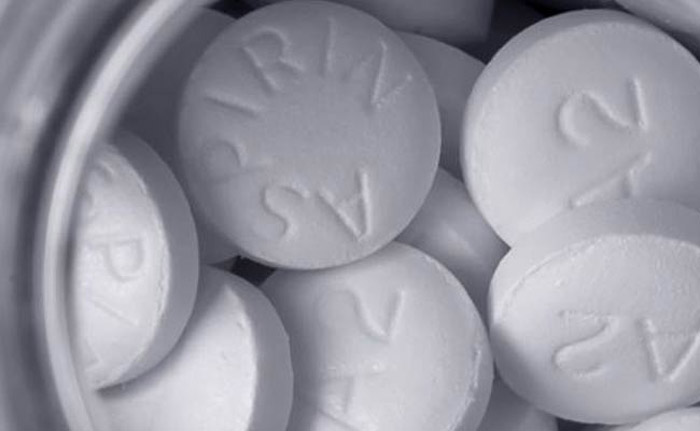The move follows a growing body of evidence that suggests aspirin may be a potent yet overlooked weapon in the war against colorectal cancer.
Even so, the draft guidelines are drawing criticism from some experts who worry that healthy people who take aspirin also expose themselves to its very serious side effects, including stomach bleeds and hemorrhagic strokes or brain bleeds. Others say there are far better proven ways to prevent heart attacks and thwart colon cancer, such as cholesterol- and blood-pressure-lowering drugs to reduce heart risk and screening colonoscopy to identify precancerous polyps.
But the task force, an independent panel of experts in prevention and primary care appointed by the Department of Health and Human Services, wields enormous influence. The panel`s recommendations on things like mammograms and prostate cancer screening have changed the way doctors practice medicine in the United States.
Nearly 40 percent of American adults older than 50 use aspirin for primary or secondary prevention of cardiovascular disease, a number likely to increase if the recommendations are finalized.
In its latest report, the task force found that taking low-dose aspirin can help prevent heart attacks, stroke and colorectal cancer, and that the benefits outweighed the risks in adults ages 50 to 69 who are at high risk for heart disease. The biggest benefit was seen in high-risk people in their 50s.
The recommendation is weaker for high-risk adults 60 to 69, because the risk of harmful bleeds increases with age. A high-risk cardiovascular patient is defined as someone who has a 10 percent or greater risk of having a heart attack during the next 10 years, something that can be determined using the National Heart, Lung, and Blood Institute`s online risk assessment tool.
There is no recommendation for aspirin use for people younger than 50 or for those 70 and older. The new guidelines warn patients to consult their doctors and assess their individual risk for bleeding complications before starting an aspirin regimen.
But some top experts questioned whether the evidence was sufficient to justify such a sweeping recommendation, saying more widespread use of aspirin could do more harm than good. Already millions of people "take aspirin who shouldn`t," said Dr. Steven Nissen, the chairman of cardiology at the Cleveland Clinic, who was part of a recent Food and Drug Administration review that concluded aspirin should not be used to prevent a first heart attack or stroke.
The task force "has gotten it wrong," Nissen said. "And we can`t afford to get this wrong, because it affects tens of millions of Americans."
Dr. Kirsten Bibbins-Domingo, the task force`s vice chairwoman, said the benefits of aspirin therapy were strongest for people who had a history of heart attack. The challenge is weighing the risks and benefits of daily aspirin for healthy adults "who have no other signs and symptoms but have multiple risk factors that put them at risk" for cardiovascular disease, she said.
"These things are what make the decision to take aspirin complex," Bibbins-Domingo said.
Cardiovascular disease and cancer are the leading causes of death for American adults, with heart attacks and stroke causing 30 percent of deaths. Colorectal cancer is the third most common cancer in the United States, causing about 50,000 deaths last year.
The task force based its recommendations on a series of evidence reviews it commissioned. One review found that when aspirin was taken to prevent a first heart attack, it reduced heart attacks by 22 percent and cut the overall death rate by 6 percent, but did not reduce strokes or deaths from cardiovascular causes. Another data analysis found a reduction in strokes.
A separate analysis on colorectal cancer found aspirin use cut colorectal cancer deaths by 33 percent and reduced colon cancer incidence by 40 percent. People needed to take aspirin at least five to 10 years to have the protection.
A third analysis focused on the risks of daily aspirin and found that aspirin use increased stomach bleeds by about two-thirds, and may increase the very rare risk for hemorrhagic stroke. The analysis estimated that the use of low-dose aspirin according to the new guidelines could result in up to two bleeding adverse events per 1,000 people over the course of a year. The task force noted that more research was needed to determine how aspirin interacted with a number of widely used medications like cholesterol-lowering statins and proton pump inhibitors.
Although aspirin therapy already is suggested for certain patients with a genetic risk for colorectal cancer, some colon cancer experts expressed reservations about the new guideline.
Dr. David Johnson, who serves on the United States Multi-Society Task Force on Colorectal Cancer, said he was concerned patients taking low-dose aspirin would forgo critical lifesaving colonoscopies.
"People still need to be screened," Johnson said. "I have major reservations that the message will be, `I take aspirin, so I don`t need to be screened.`"
But officials with the American Heart Association and the American Cancer Society praised the new recommendation. "The task force did an outstanding job," said Dr. Mark Creager, the president and chief voluntary scientific and medical officer of the American Heart Association, adding the position was consistent with his organization`s guidance.
Dr. Eric Jacobs of the American Cancer Society said that there was also good evidence that aspirin may lower the risk of esophageal cancer, and fairly good evidence it lowers stomach cancer risk.
There is even some evidence it may slightly lower the risk of common cancers such as breast, prostate and lung cancer, though that evidence is too weak to draw conclusions.
"No major health organization has previously recommended the use of aspirin to prevent cancer," Jacobs said, and there are no recommendations directed at both cardiovascular risk and cancer.
More about:
















































